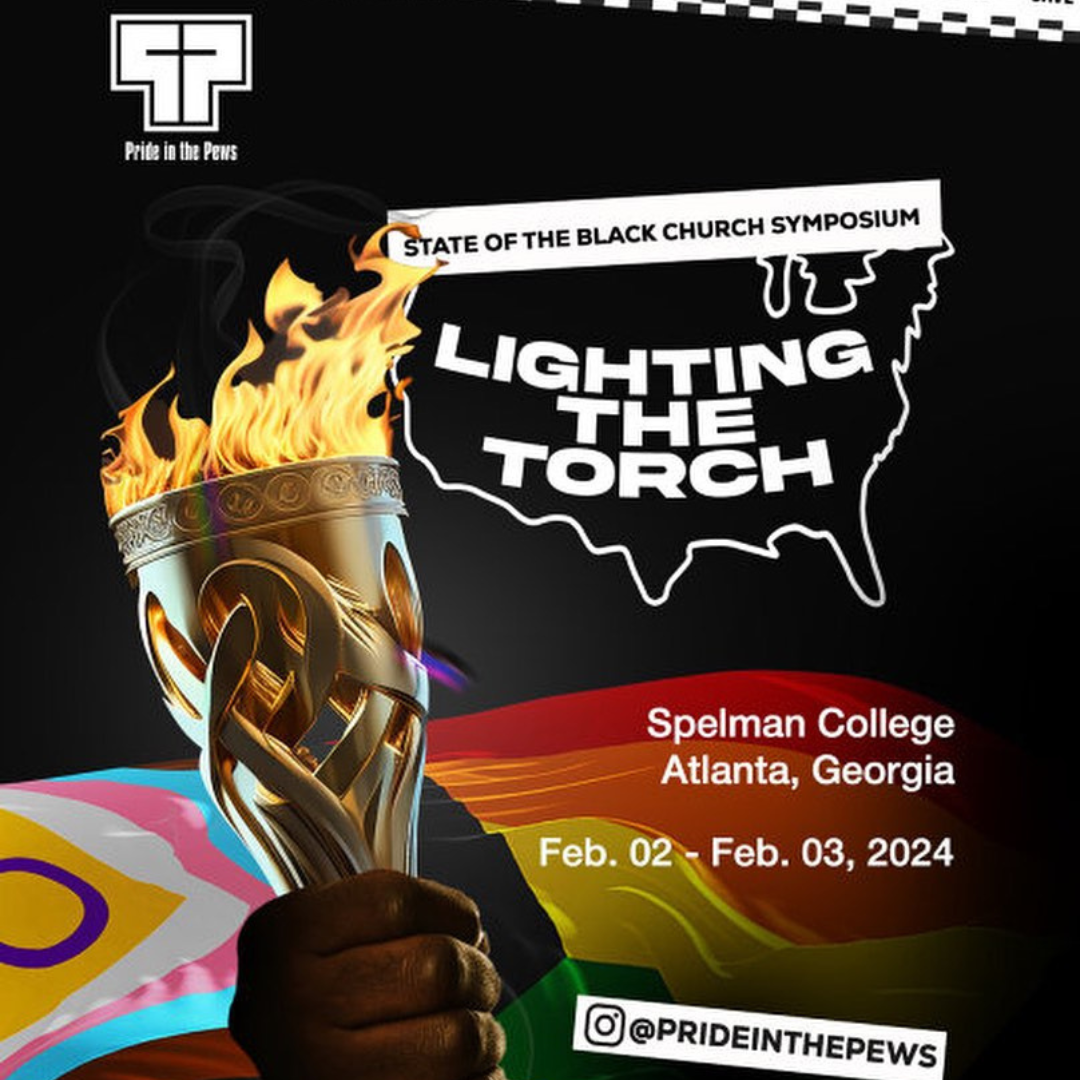Pride in the Pews Symposium
This past February, Pride in the Pews hosted their annual Symposium where people of faith are invited to celebrate queerness as an integral aspect of their spiritual expression. FMN had the pleasure of being an organizational sponsor of this third Symposium, “Lighting the Torch.” Held at Spelman College, FMN Program Coordinator, Casey explored the curated collection of showcases, services, socials, and plenary sessions to nurture an ecosystem of care for Black multi-marginalized community.
Named after Sojourner Truth’s famous speech, the “Ain’t I a Woman” panel was a highly-anticipated highlight of the “Lighting the Torch” Symposium. The panel had transgender women and cisgender women in conversation with one another, allowing sisters in liberation to co-create an expansive and affirming womanhood. Sojourner Truth alludes to this in her speech as recorded by Frances Dana Barker Gage,
“That man over there says that women need to be helped into carriages, and lifted over ditches, and to have the best place everywhere. Nobody ever helps me into carriages, or over mud-puddles, or gives me any best place! And ain’t I a woman? Look at me! Look at my arm! I have ploughed and planted, and gathered into barns, and no man could head me! And ain’t I a woman? I could work as much and eat as much as a man – when I could get it – and bear the lash as well! And ain’t I a woman? I have borne thirteen children, and seen most all sold off to slavery, and when I cried out with my mother’s grief, none but Jesus heard me! And ain’t I a woman?”
Truth, in this way, foreshadowed womanist thought hundreds of years before the term’s mother, Alice Walker, lived. In so doing, Truth long ago gave voice to Black women noticing that “womanhood” in the colonial setting had no hope of being agnostic or apolitical. The panelists were able to collaborate in a delightful display of Black sisterhood, discussing issues that affect us in the spirit of the womanist tradition. The audience of largely queer and trans Black faithfuls maintained a reverent excitement, interjecting customary Black church responses to every speaker.
The panel began with three trans women in conversation with Kim Daily who invited them into sharing how their faith experience interacted with their trans experience. They each noted the tensions between their faith practice and transness along with the means by which they have insisted on resonance between seemingly dissonant identities.
Bishop Emma Lynn Paris LaBelle was empowered by being able to recreate church in her own image. She now assumes the role of Bishop over the Tabernacle of Praise Assemblies of Churches, a ministry haven for LGBTQ+ Christians that is expanding as across North and South Carolina. Rev. Danielle Dufoe had a similarly insistent attitude regarding her faith practice. Despite being forced from congregational participation due to anti-LGBTQ theology, she pursued postgraduate theological education to become the first transgender Black woman to complete postgraduate education from a Historically Black Theological Institution (HBTI). Panelist Morgan Murdock expressed how her leadership in arts, media, and activism has followed the valleys and crests of her Catholic upbringing.
They were later joined by their cisgender sisters, Candice Benbow and Dr. Pamela Lightsey who spoke to some of the absurdities of pitting types of womanhood against each other. “I’ve never seen us gatekeep menstrual cycles!” Benbow quipped. Prominent among Dr. Lightsey’s responses was a call for accountability from the Black church which was conceived as a sacred site of resistance and has been diluted to “places” as she sardonically named them, the vagueness of the term humorously underscoring Lightsey’s own confusions surrounding the parentage of an anti-LGBTQ Black church. The Black church that has been sold out to anglicized notions of womanhood and cisheteronormativity is not one that Dr. Lightsey recognizes as sharing common heritage with the Black Church that emerged as a counter to settler-colonial violence.
Algorithms can have an even more polarizing effect where differences between ideologies are magnetically attracted to one another. Discord between ideas and cultures foments debate around who can be called “woman”. Fear and outrage precipitate orgasmic floods of reposts, likes, engagement, and attention – social media’s national currency. Where an increasingly monetized digital square can disadvantage a collaborative spirit. This panel testifies to the presence of healers facilitating environments of connectivity and kinship. Most importantly, the panel followed in the womanist tradition of radical self-inquiry and analysis – Black women do not need other people to tell us who we are.
With this hope for reconciliation, Pride in the Pews has been covenanted to the call towards co-creating environments of flourishing for LGBTQ+ folks, particularly those of faith. Throughout the conference, we could see the skillful alchemy by which their work centers the holistic health and wellness of LGBTQ+ kin. The “Aint I a Woman” panel was one of several examples of how the organization uses stories to sidestep apologetics and controversy in favor of compassionate accompaniment as a balm to those in the work of solidarity.



